Scientists Say
A weekly word defined, in a sentence and in context.
-
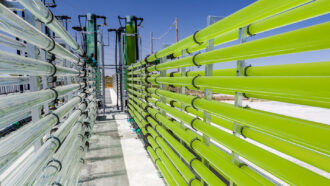 Environment
EnvironmentScientists Say: Carbon capture
Carbon capture technology tackles climate change by stomping out carbon dioxide at the source.
-
 Brain
BrainScientists Say: Confirmation Bias
Confirmation bias is the tendency to seek out and believe information that agrees with what we already think.
-
 Science & Society
Science & SocietyScientists Say: Model
Models are representations of real-life systems or processes that we use to ask questions, make predictions and test our knowledge.
-
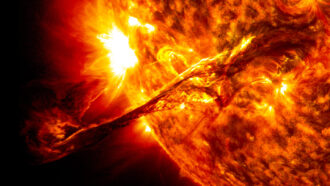 Space
SpaceScientists Say: Solar Cycle
This roughly 11-year cycle in the sun’s activity can affect space weather that messes with Earthly technology.
-
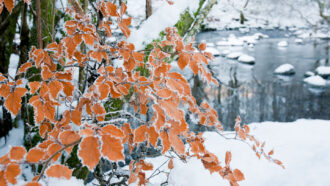 Plants
PlantsScientists Say: Marcescence
Autumn turns to winter, yet some trees' dead leaves keep hanging on.
-
 Materials Science
Materials ScienceScientists Say: 2-D Material
Two-dimensional materials such as graphene could improve electronics, carbon capture and more.
-
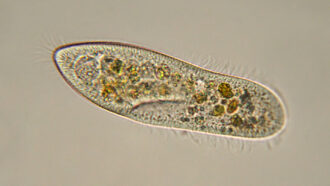 Life
LifeScientists Say: Protist
Unified by a few key traits, these diverse organisms come in all shapes and sizes.
-
 Physics
PhysicsScientists Say: Polarized light
Sunlight, lamplight and other lights are usually unpolarized. But passing light waves through filters can ‘polarize’ them.
-
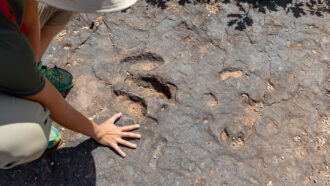 Life
LifeScientists Say: Ichnology
This field of science looks to understand life — past and present — by studying how organisms altered their surroundings.
-
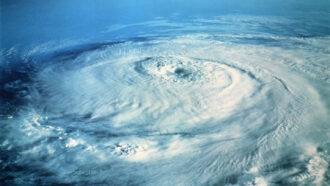 Physics
PhysicsScientists Say: Coriolis Effect
Because Earth spins, airborne objects traveling far and fast — such as airplanes — experience deflections in their motion.
-
 Health & Medicine
Health & MedicineScientists Say: Calorie
These little units help us measure energy transfer in chemistry, nutrition and beyond.
-
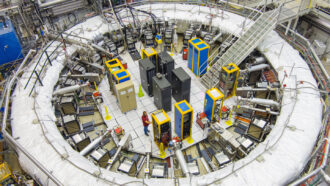 Physics
PhysicsScientists Say: Muon
Tracking muons raining down on Earth can reveal new details of pyramids, volcanoes and thunderstorms.